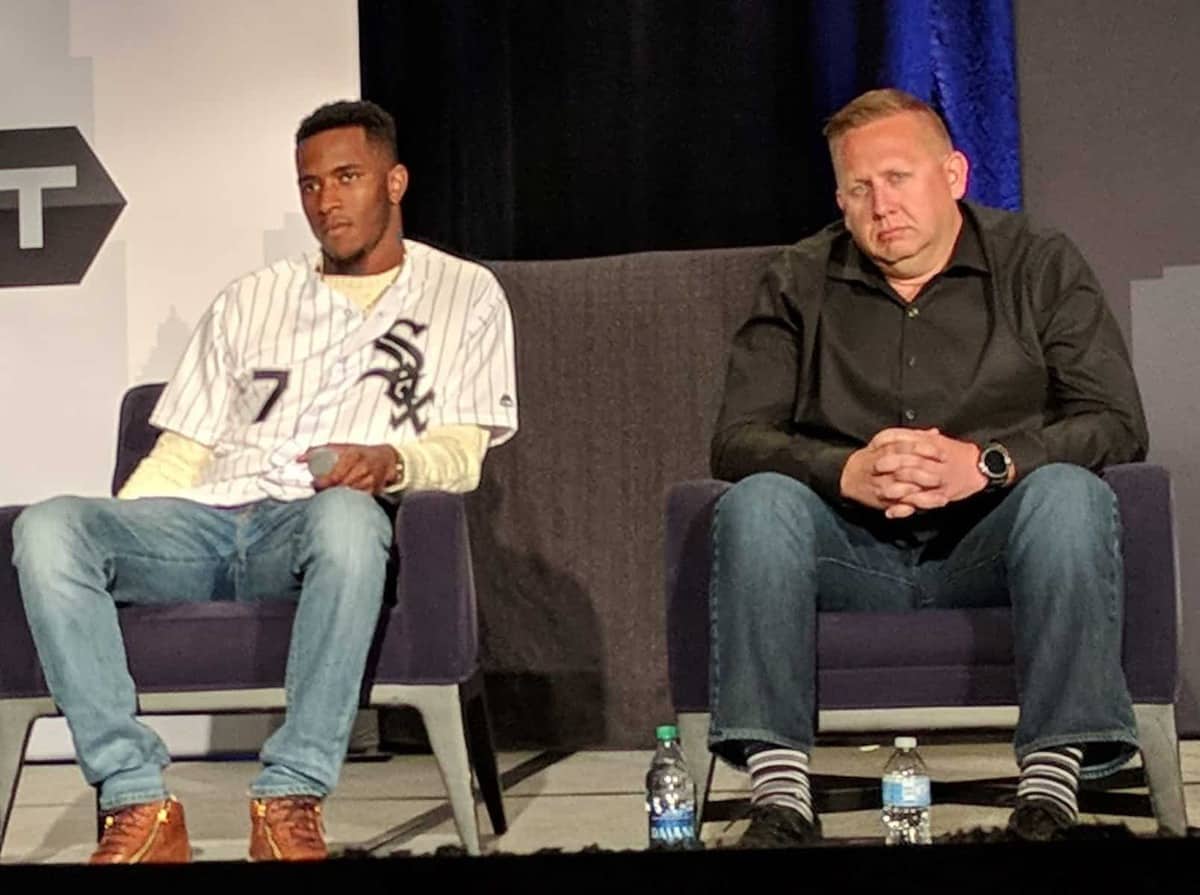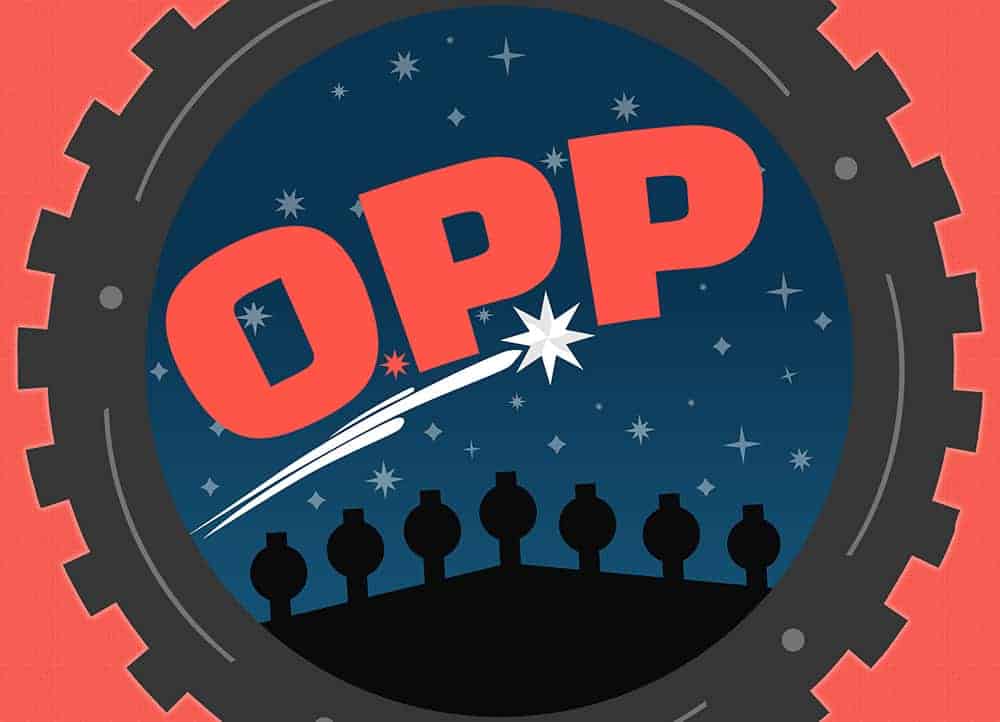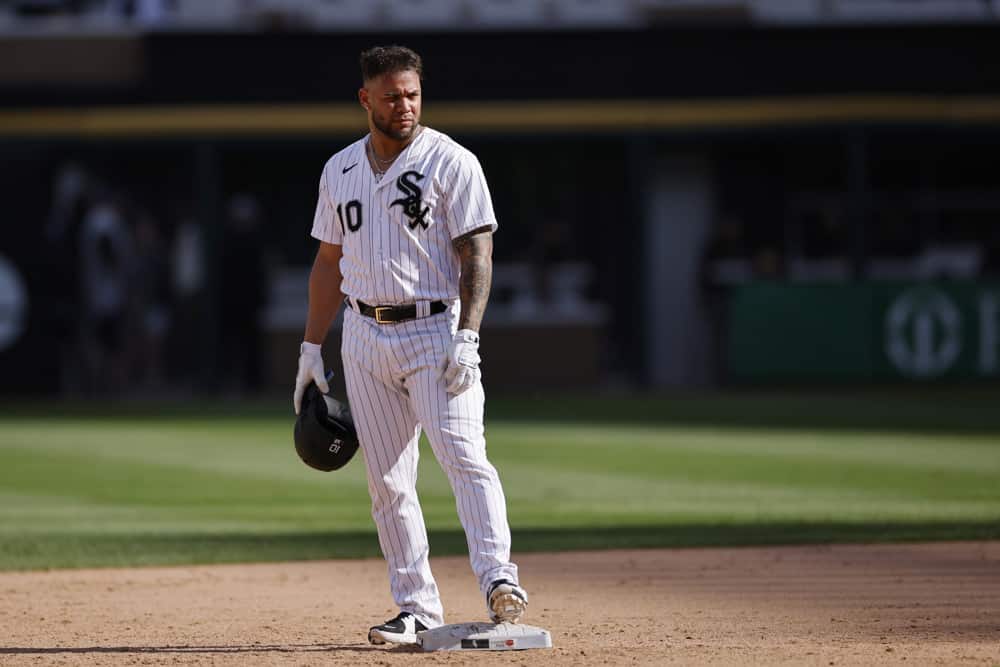The White Sox have scored one run over the last two games, but they found a way to make nosie off the field by shaking up the upper reaches of their scouting department on Wednesday.
Nick Hostetler is the man in motion, going from director of amateur scouting to special assistant to the general manager whose purview will be major-league scouting.
It's hard to know what to make of this move, just like it's hard to know what to make of his time as scouting director. There's a lot of noise in here. The White Sox added a lot of amateur scouts during his time, but they also drafted higher than ever on a consistent basis. The future of scouting is also as a crossroads since Trackman data is increasingly available at both the minor-league and amateur levels.
Maybe Hostetler is the best set of eyes the White Sox have during a time in the rebuild where the major acquisitions are going to be MLB-ready or MLB-proven. Maybe other teams have an interest in Hostetler, so the Sox gave him a cushier gig where he can get rid of his Oakley tanlines. It's very much in line with their history of promoting and rewarding from within, although that's not something that often bears results.
The results of Hostetler's time as scouting director haven't been readily apparent either, although it'll still take a couple years to properly assess his track record.
Hostetler officially took over as scouting director in 2016, although his predecessor Doug Laumann allowed him to handle everything after the first pick of the 2015 draft (Carson Fulmer). The White Sox didn't have a second- or third-round pick that year due to the signings of Melky Cabrera and David Robertson, so Hostetler lacked the resources that would be available to him in future drafts.
Seby Zavala making the majors from the 12th round appears to be the only accomplishment to date, although 22nd-rounder Danny Mendick is on the cusp of a call-up, and I'd expect to see fifth-rounder Jordan Stephens cracking a 25-man roster at some point in the future, even if he's now on Cleveland.
Hostetler took over for good in 2016, when he was lauded for picking polished collegiate producers over athletes. The shift in strategy was lauded as the White Sox attempted to get away from swing-and-miss profiles and find "baseball players" instead.
While we can't make a definitive judgment on the draft classes right now, we can say that it hasn't resulted in faster development tracks or shortcuts otherwise. Part of it's bad luck and out of Hostetler's hands, like Jake Burger rupturing his Achilles tendon twice and Zack Burdi's Tommy John surgery and perpetual recovery from it. Alec Hansen is also probably a victory for Hostetler and a loss for player development, as he looked like a top-50 prospect after his first full pro season.
But then you have Zack Collins, who didn't hit like a 10th-overall pick even during his time in A-ball. He was supposed to have first base or DH as a backup plan, but now his future hinges on his glove developing enough to become rosterable.
The Collins pick marked the start of two college-heavy drafts that failed to produce a prospect that slot comfortably in the team's own top 10 right now. While the White Sox farm system reached new heights during Hostetler's time as scouting director, the players he drafted had little to do with it, especially after Hansen collapsed.
Yoan Moncada, Eloy Jiménez, Reynaldo López and Lucas Giolito have since graduated, and while picks like Andrew Vaughn and Nick Madrigal have taken two of those spots ... well, they were candidates to be selected first overall, so they better be top-five prospects in the organization.
The recent ascents of Gavin Sheets and Jonathan Stiever serve as reminders that these classes can't be entirely evaluated right now, and the shift to prep-heavier classes the last two seasons offers a pleasant respite from the lack of projectability and up-the-middle athleticism.
Still, little of the White Sox' cost-controlled talent base is actually homegrown. Madrigal and Vaughn figure to change that, but the farm system isn't a renewable resource if the White Sox can only matriculate top-four picks or prospects acquired by shedding blue-chip MLB talent, because both of those sources will dry up if and when the Sox start winning. Again, it's still too early to close the book on the Hostetler era, and maybe when we reevaluate his body of work as scouting director in 2021, we can say he helped build a legitimate talent pipeline. We just can't say it now.





